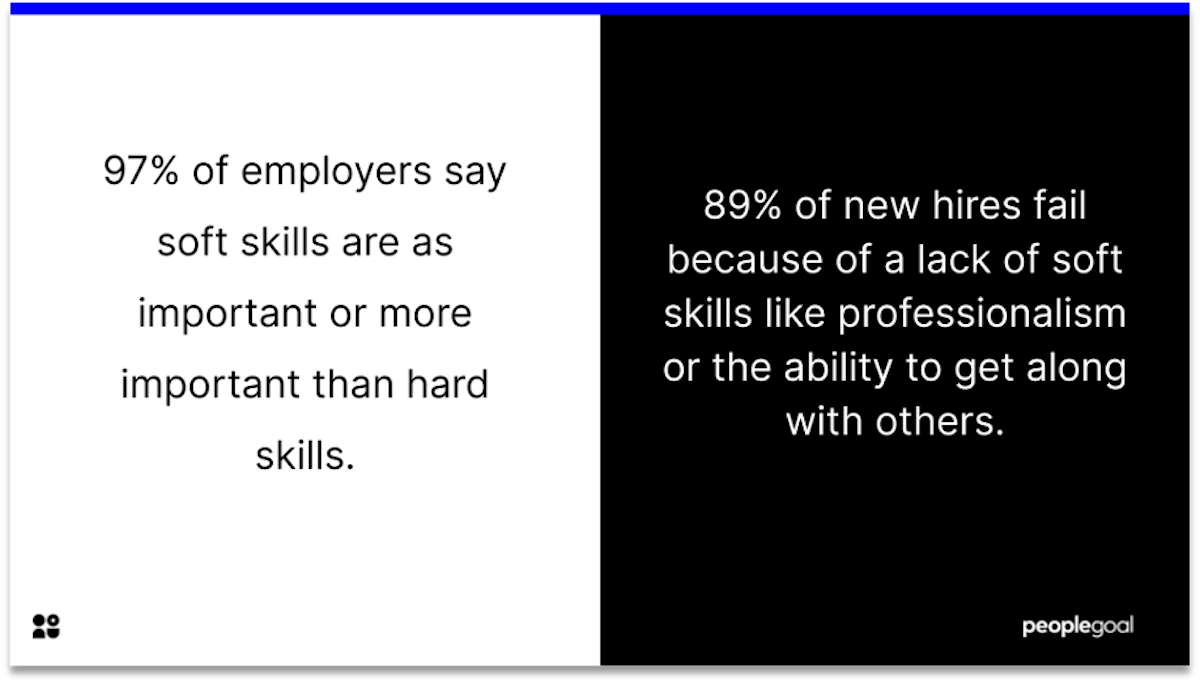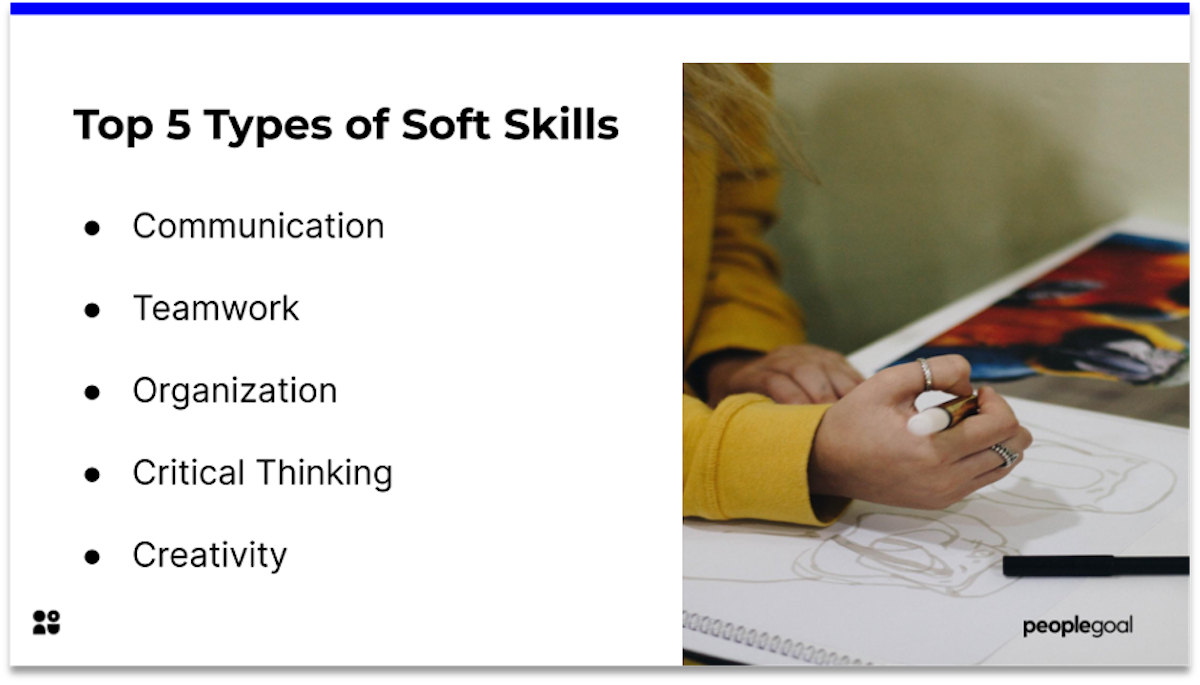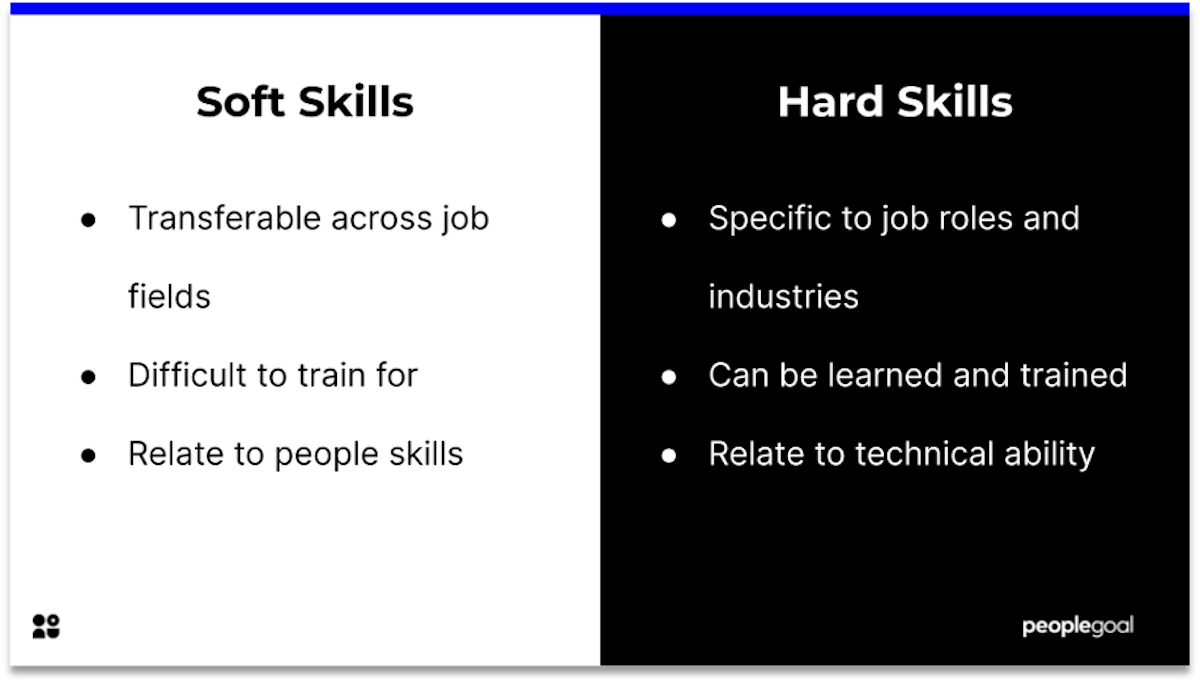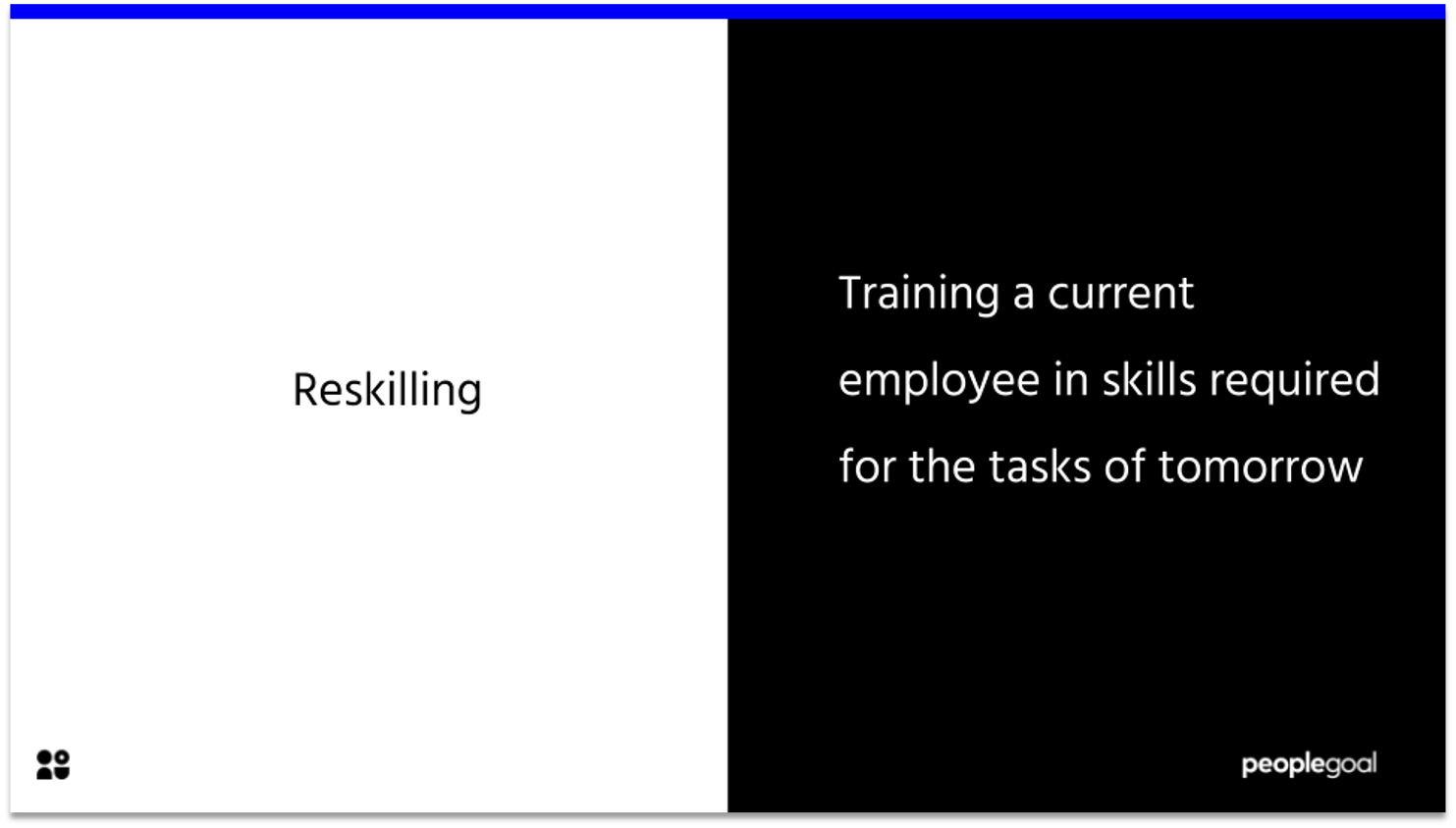Soft skills are in high demand by employers as we navigate a rapidly changing work environment. As more of our technical work becomes automated there is estimated to be a 24% rise in hours spent by workers on soft skills, according to a McKinsey study.
When it comes to your job search, demonstrating soft skills in your cover letters and job interviews will set you apart from other candidates with similar education, experience and technical ability.
We’ll explain what soft skills matter most and why, and include examples so you can learn how to list soft skills on your resume.
What are Soft Skills?
Soft skills are your interpersonal skills – how you interact with people and relate to your colleagues. Soft skills also apply to your ways of working, like being organized, self-motivated and creative. Soft skills are sometimes referred to as transferable skills, i.e. skills that aren’t job specific and that will serve you throughout your career.
Because soft skills are very often personality traits they are more difficult to quantify than hard skills – and even more difficult to train for. Candidates who already possess soft skills are valuable hires to employers as they’re much more likely to succeed long-term, be able to fit in at work, and have the natural ability to adapt to change.
In research conducted by LinkedIn, 92% of human resource respondents said soft skills are more important than technical skill and 89% said that bad hires typically lack soft skills.

Why are Soft Skills Important in the Workplace?
Employees with strong soft skills aren’t just able to do what their job requires, they’re able to excel. People with soft skills are often emotionally intelligent and able to navigate their work environment with professionalism and flexibility to produce great results.
Just about every workplace requires you to collaborate with teammates, solve problems, communicate across functions and prioritize your tasks. Employers are looking for the candidates who are self-sufficient and resilient, as they’re more likely to adapt to change, grow and develop with the organization. It’s not only what you do that matters, it’s how you do it.
💡 When highlighting your soft skills in a job interview, make sure you give examples of how you used these skills. Don’t just say that you’re a great collaborator – talk about your latest project, what difficulties you faced, and how you worked together to achieve results.
Soft Skills Examples
These are the top five categories of soft skills that are crucial for success in the workplace. We’ve also given examples of each skill and how to describe them in your work experience.

📝 Communication
Communication skills are consistently at the top of the list of soft skills businesses are looking for. Good written, verbal and visual communication is essential to deliver information quickly and accurately. Being able to share your message with clarity is vital. But non-verbal communication (body language, eye contact, tone of voice) is just as important to build understanding and solid work relationships, and poor communication skills lead to misunderstanding and confusion.
When describing your communication skills, be sure to include:
- Written communication: emails, proposals, policies, editing
- Story telling: presentation skills, influencing, language choice
- Collaboration: active listening, conflict management, negotiation, persuasion
💪 Teamwork
Regardless of your role, you need to be able to work well with others. Even if you’re the only person in your department you’ll still need to cooperate with other teams and work together towards the company strategy. Showing respect for your peers and a willingness to help colleagues will set you up as a reliable team player.
Teamwork skills include:
- Social skills: co-operation, interpersonal communication, conflict resolution
- Attitude: positivity, encouragement and support, humour, ability to give feedback
- Problem-solving: delegation, listening, decisiveness
- Emotional intelligence: empathy, integrity, awareness of diversity, equity and inclusion
⏳ Organization
Organizational skills might not sound as important as other soft skills, but they’re vital to establish trust, reliability and professionalism. Being able to prioritize your workload effectively is one of the top requirements of any job and yes – time management is a soft skill. Individuals with strong organizational skills show that they are self-managed, goal-oriented and reliable. On a business level, having organized team members increase productivity and ensure operational efficiency.
Some examples of organizational skills are:
- Time management: ability to prioritize tasks, punctuality, preparedness
- Professionalism: reliability, attention to detail, respect
- Work ethic: self-reliant, goal-oriented, meets deadlines
- Adaptability: ability to manage high pressure and stress
🤔 Critical Thinking
Critical thinking is the ability to objectively analyze and evaluate an issue. It’s the ability to think clearly and rationally, fully understand problems and make informed decisions. Part of this involves curiosity and questioning, to understand the deeper causes and not take a stance based on emotional reactions. You can see why critical thinking is highly valued at work, as you use these skills in problem solving and designing innovative solutions.
Demonstrating your critical thinking skills can include:
- Self-awareness
- Problem solving
- Curiosity
- Analytical skills
- Research
- Resourcefulness
- Questioning the status quo
- Giving reasoned judgements
💡 Creativity
Creativity doesn’t just refer to artistic ability; creativity as a skill is about design thinking and being open minded. Creative individuals are able to see problems in a new light and approach their work with a different mindset and attitude. Creativity is also extremely important to be able to adapt quickly to change, and pivot when it’s required.
Creativity in your job role can be shown through:
- Design thinking
- Flexibility
- Open-mindedness
- Brainstorming
- Imagination
- Taking an experimental approach
- Being open to change
👉 These are the top 5 types of soft skills for employees, but managers have additional responsibilities and requirements. Check out our blog on the Essential Manager Skills for Workplace Success.
What is the Difference Between Hard Skills and Soft Skills?
As we see with these examples, soft skills are your people skills and the way you approach your work. Hard skills are more concrete, measurable abilities that require training and expertise to learn. Hard skills are your technical capability and the knowledge in your field – like the programming languages you know as a developer. Hard skills are typically job-specific and set you up for a career path in your chosen industry. Depending on your role, the balance of hard skills and soft skills you need to succeed will be different – but both are essential.

How to Develop Soft Skills
Soft skills, while difficult to teach, can be improved through experience and observation. Soft skills aren’t just developed at work; you build your soft skills at school, through team sports, and in collaborating with others. So even if you’ve never worked before you should have some demonstrable soft skills to include on your resume, whether that’s volunteering or academic experience.
In the workplace you can learn a lot of soft skills by paying attention to colleagues who excel at communication, teamwork, organization, critical thinking and creativity. Consider your own skills gaps and try to emulate their ways of working. Self-assessments and peer evaluations are excellent tools to highlight your blind spots and areas for improvement.
Some learning and development programs do address soft skills training through team activities and practical tips, and they’re typically offered at work. You can also build up your soft skills by taking on more responsibilities outside of your core job role like planning work events, joining committees and giving presentations.
Soft skills are essential to delivering your best work, and in most jobs they are becoming more sought-after than hard skills. By demonstrating these essential soft skills on your resume, with concrete examples of how you’ve used these skills, you’ll be setting yourself apart from the other candidates for a new role, and building your leadership skills into the future.
Ready to 3x Your Teams' Performance?
Use the best performance management software to align goals, track progress, and boost employee engagement.




